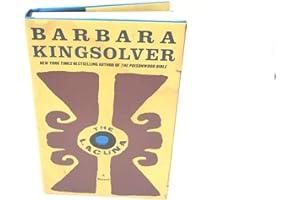One sentence summary:
The Lacuna is a historical fiction novel that follows the life of a man named Harrison Shepherd, who becomes entangled in the political and social turmoil of 20th century Mexico, as well as the lives of prominent figures such as Frida Kahlo and Leo Trotsky.
Book genre:
Historical fiction.
Main topic of the book:
The main topic of The Lacuna is the societal and political climate of Mexico in the 20th century, particularly the rise of communism and the persecution of artists and intellectuals. It also delves into themes of identity, belonging, and the power of words and stories.
Key ideas:
- The dangerous consequences of political and social turmoil on artists and intellectuals
- The impact of relationships on one’s sense of identity
- The importance of stories and their ability to shape history and personal narratives
- The complexities of navigating one’s cultural heritage
Main parts of the book and a short summary:
- Part One: The Lake: Set in Mexico in the 1920s, young Harrison Shepherd finds himself living with a family who work for famous artist Frida Kahlo. He becomes her cook, and through her, he is introduced to her husband, Diego Rivera, and exiled communist leader Leon Trotsky.
- Part Two: The Lacuna: Harrison moves back to the United States in the 1930s and becomes a successful writer. He becomes friends with renowned author, Mrs. Violet Brown, who encourages him to write about his experiences in Mexico.
- Part Three: The Islands: Harrison returns to Mexico in the 1940s, seeking a sense of belonging and purpose. He is forced to confront the harsh realities of the communist witch hunt and the impact it has on those he cares about.
- Part Four: The Lacunae: In the 1950s, Harrison is caught up in the political drama of the Cold War and must choose between loyalty to his country and loyalty to his friends.
Key takeaways:
- History is shaped by both individuals and collective stories.
- The personal is intertwined with the political.
- Identity is often a fluid and complex concept.
- The power of language and writing to convey truth and shape perceptions.
Author’s background and qualifications:
Barbara Kingsolver is an acclaimed author known for her writing on social and environmental issues. She has received numerous awards for her work, including the Orange Prize for Fiction and the National Humanities Medal. Kingsolver has a background in biology and worked as a scientific writer before becoming a novelist.
Target audience:
The book is targeted towards readers who enjoy historical fiction, particularly those interested in Mexican history and culture, as well as those interested in political and social issues.
Publisher and first publication date:
HarperCollins published The Lacuna on November 3, 2009.

